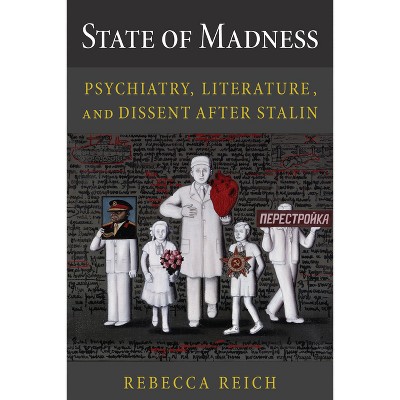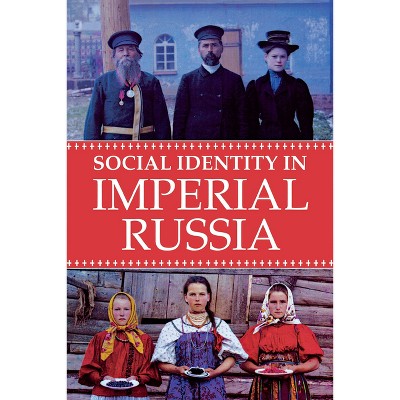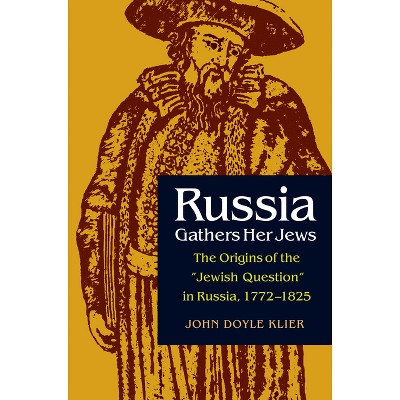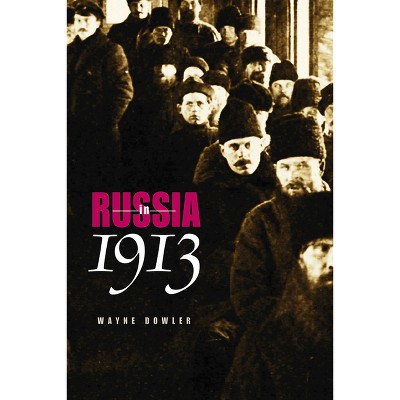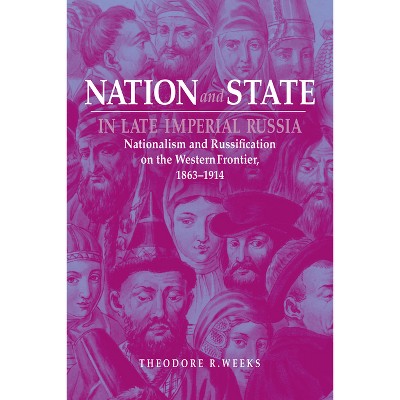The Right to Be Helped - (Niu Slavic, East European, and Eurasian Studies) by Maria Cristina Galmarini (Paperback)

About this item
Highlights
- "Doesn't an educated person--simple and working, sick and with a sick child--doesn't she have the right to enjoy at least the crumbs at the table of the revolutionary feast?
- About the Author: Maria Cristina Galmarini-Kabala is assistant professor of history at James Madison University.
- 300 Pages
- History, Russia & the Former Soviet Union
- Series Name: Niu Slavic, East European, and Eurasian Studies
Description
About the Book
"Doesn't an educated person--simple and working, sick and with a sick child--doesn't she have the right to enjoy at least the crumbs at the table of the revolutionary feast?" Disabled single mother Maria Zolotova-Sologub raised this question in a petition dated July 1929 demanding medical assistance and a monthly subsidy for herself and her...Book Synopsis
"Doesn't an educated person--simple and working, sick and with a sick child--doesn't she have the right to enjoy at least the crumbs at the table of the revolutionary feast?" Disabled single mother Maria Zolotova-Sologub raised this question in a petition dated July 1929 demanding medical assistance and a monthly subsidy for herself and her daughter. While the welfare of able-bodied and industrially productive people in the first socialist country in the world was protected by a state-funded insurance system, the social rights of labor-incapacitated and unemployed individuals such as Zolotova-Sologub were difficult to define and legitimize. The Right to Be Helped illuminates the ways in which marginalized members of Soviet society understood their social rights and articulated their moral expectations regarding the socialist state between 1917 and 1950.
Maria Galmarini-Kabala shows how definitions of state assistance and who was entitled to it provided a platform for policymakers and professionals to engage in heated debates about disability, gender, suffering, and productive and reproductive labor. She explores how authorities and experts reacted to requests for support, arguing that responses were sometimes characterized by an enlightened nature and other times by coercive discipline, but most frequently by a combination of the two. By focusing on the experiences of behaviorally problematic children, unemployed single mothers, and blind and deaf adults in several major urban centers, this important study shows that the dialogue over the right to be helped was central to defining the moral order of Soviet socialism. It will appeal to scholars and students of Russian history, as well as those interested in comparative disabilities and welfare studies.
Review Quotes
Galmarini's book demonstrates how a focus on the socialist world can help us to rethink existing narratives about international disability politics by challenging the sidelining of socialist understandings of disability after 1991 and highlighting the ways in which much contemporary disability activism is nonetheless indebted to the socialist experience.
-- "The Russian Review"The Right to Be Helped brings together significant new archival information on the Soviet state's practice of social assistance, and provides a valuable addition to the scholarship on marginality, disability, and welfare in the USSR.
-- "The Russian Review"The Right to Be Helped is an excellent account of the complex nature of help and its construction in the context of historical events and individual stories.
-- "Europe-Asia Studies"This book is a very valuable addition to our understanding of Soviet history, precisely because it gives a voice to those who were excluded and overlooked.
-- "Canadian Slavonic Papers"About the Author
Maria Cristina Galmarini-Kabala is assistant professor of history at James Madison University. The recipient of a Davis Center fellowship, she has published articles and essays on Soviet history in English, Russian, and Italian scholarly journals.






